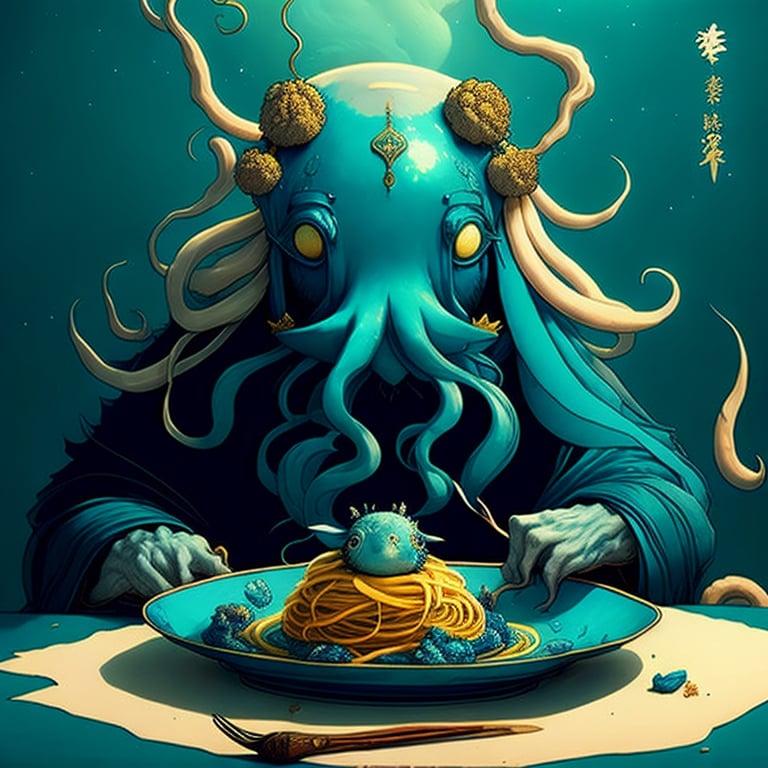- cross-posted to:
- todayilearned@lemmit.online
- til@lemmy.world
- cross-posted to:
- todayilearned@lemmit.online
- til@lemmy.world
Cooking and plant care sites are, in my opinion, 90% bot generated. I have nothing to back this up besides vibes and the vibes are bad.
A lot of the times the vibes are correct. Text uncanny valley, I suppose.
The other day I was doing research for a paper about cornbread, and I was reading this website that seemed fine at first. It said something like “Corn was originally grown in the Americas by the native Americans” and then a couple paragraphs down it said “Corn was brought to the Americas by the Europeans.” This wasn’t just straight up factually incorrect, but it also contradicted the own damn thing it was saying! Incredibly frustrating to be down that far in an article and realize that everything I just read can’t be trusted. Not to mention, those AI written articles say nothing half of the time because they just repeat the same thing in a convoluted word salad.
I want to hear more about the cornbread analysis
Essentially I identified multiple cornbread variants such as hoecakes, hushpuppies, corn pone, and hot water cornbread. Also noted how cornbread itself varies both regionally and by class. People who were of the lower class tended to have cornbread that used less ingredients (usually cornmeal and water). Yankees usually make their cornbread like cake and put a lot of sugar and baking powder. There’s also Mexican cornbread with pimentos, jalapeños, and cheese. Southern cornbread varies but usually has none or a teaspoon of sugar to offset the flavor of the shit cornmeal which is usually the only thing you can find in stores nowadays. Cornbread pone is more popular in the southern Appalachian mountains and directly came from the native Americans.
i recently wanted to look up a couple recipes. i swear essentially the entire first page was AI slop. Measurements and amounts of ingridients didnt match up, contradictory advice. All total trash
A lot of things I try to look up end up being served to me on a silver platter of soe clones and it’s infuriating. I’ll try to find help for games I’m playing and find a bunch of sites with dodgy names repeating the same key words but it’s generally incorrect
Same for plants, especially when I find something unusual at the shop and want to find about its care… Nearly impossible
I will say that cooking AI generated content isn’t the worst thing in the world. Sure, it lacks soul, tradition, and creativity, but sometimes it can turn out pretty decent (assuming that you’re not dealing with cooking potentially dangerous if not cooked properly foods like chicken).
I’m thankful for the skip to recipe button. I’ll say that much.
I don’t know whether or not this is true, but I heard that the reason they have those long stories that nobody wants to read is to avoid copyright issues or to copyright it themselves.
It’s also great for SEO. You get to cram more keywords so Googlebot can pick up on your recipe and think it’s a substantial page instead of spam. You link to and from your other recipes to build up credibility and potentially entice a visitor to stay longer by having them check out your other recipes. Most sites have basically zero dedicated followers and rely on search engine in-links for visitors, so they really want to catch the people who are doing a month of meal prep or something.
Sorta. Recipes don’t qualify for copyright protection according to most countries, so there is an incentive in cookbooks to write more than just the recipe so prevent someone from just republishing the book. There is something similar with recipe sites, but it’s really more about the ad views from someone scrolling down since copyright violation on the internet is so common and relatively rarely enforced.
Assuming the recipe isn’t ai generated too
I’ve never run into a total failure of a recipe where the proportions are unreasonable or the ingredients don’t match, except on instagram.
The worst offenders were black bean brownies (looked like turd, chewed like putty), with carrot bacon coming in a hot second place. But that’s not AI fuckery. That’s health influencers lying for views, and me fact checking their bullshit.
I think Barry Lewis tried making that carrot bacon and seemed to like it.
Ladies and gentlemen, esteemed judges, and fellow debaters,
Today, I stand before you to argue against the premise of the “Dead Internet Theory”—the idea that the internet, as we once knew it, has been overtaken by AI, with human activity reduced to a mere illusion. According to proponents of this theory, the internet is now mostly controlled by automated systems, rendering human-generated content obsolete. However, this theory is not only unsubstantiated but fundamentally flawed in its understanding of the digital ecosystem.
First, let’s address the core of the argument. The theory suggests that much of what we see online—social media posts, blog entries, even comments—are fabricated or curated by AI algorithms rather than real people. Yet, this overlooks the vibrant, diverse, and undeniably human presence that continues to thrive across the internet. Millions of individuals contribute daily to the creation of content, from videos to tweets to in-depth articles. If the internet were truly “dead,” where would these millions of creators, educators, activists, and everyday users be?
Moreover, the “Dead Internet Theory” fails to acknowledge the sheer complexity and scale of human interaction online. From social movements to grassroots organizing, from academic research to the digital art scene, the internet is as dynamic and human-driven as ever. AI certainly plays a role in shaping what we see online—through algorithms, recommendations, and chatbots—but these systems are designed by humans, for humans. They serve our needs, not replace us.
Lastly, let’s not forget the wealth of human-driven innovation that continues to emerge online. Every day, people develop new tools, create new platforms, and foster new communities. The internet is not dead; it is alive, evolving, and as human as ever. Thank you.
- Written by ChatGPT
I was reading this and as I went down my eyebrow slowly started going up higher and higher until I came to the end
At least you can detect it’s AI written here, but sometimes it’s not so obvious.






